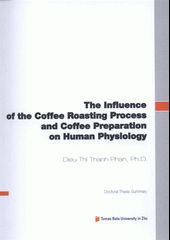Anotace
Caffeine (1, 3, 7-trimethylxanthine) is known as a Central Nervous System (CNS) stimulant. Coffee beans contain between 0.8 and 2.8% caffeine - depending on species and origin. It contributes to 10 - 30% of the bitter taste of coffee brews. The caffeine content in C. canephora (Robusta) is about two times that of C. arabica (Arabica). The caffeine content of a coffee bean is not significantly changed during coffee roasting. However, the amount of caffeine in coffee brewing substantially varies according to the type of product (Arabica, Robusta, or ratio of Arabica to Robusta in blending), the grinding degree, brewing methods (Espresso, Turkish or Filter coffee) and the serving size (i.e. cup volume). Commercial ground roasted coffees may be available on the market in different roasting degrees, grinding degrees, ratio of coffee species in blending, on all of which depends the quality of the product.
Žánr a kategorie knihy The Influence of the Coffee Roasting Process and Coffee Preparation on Human Physiology









